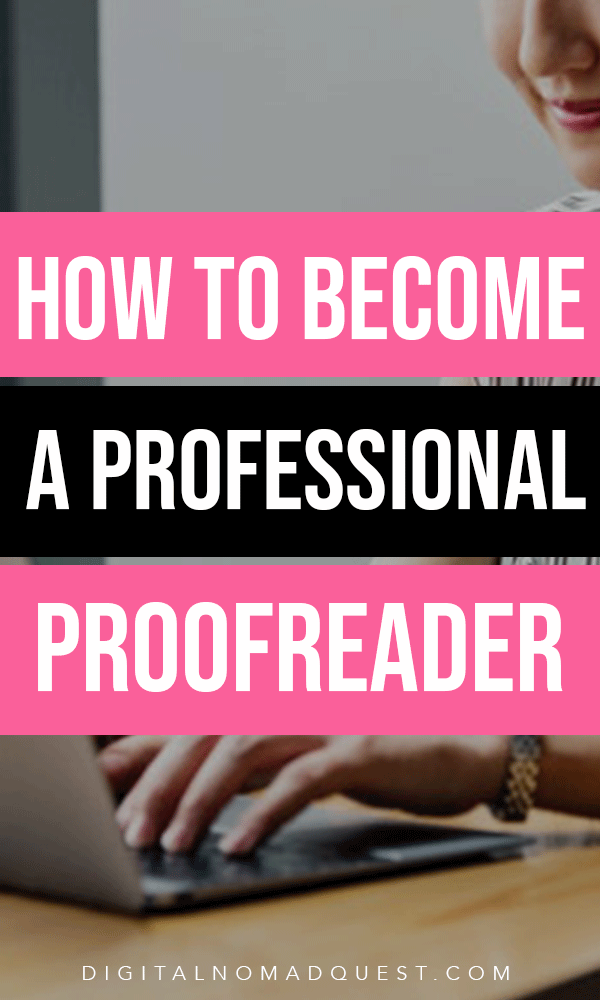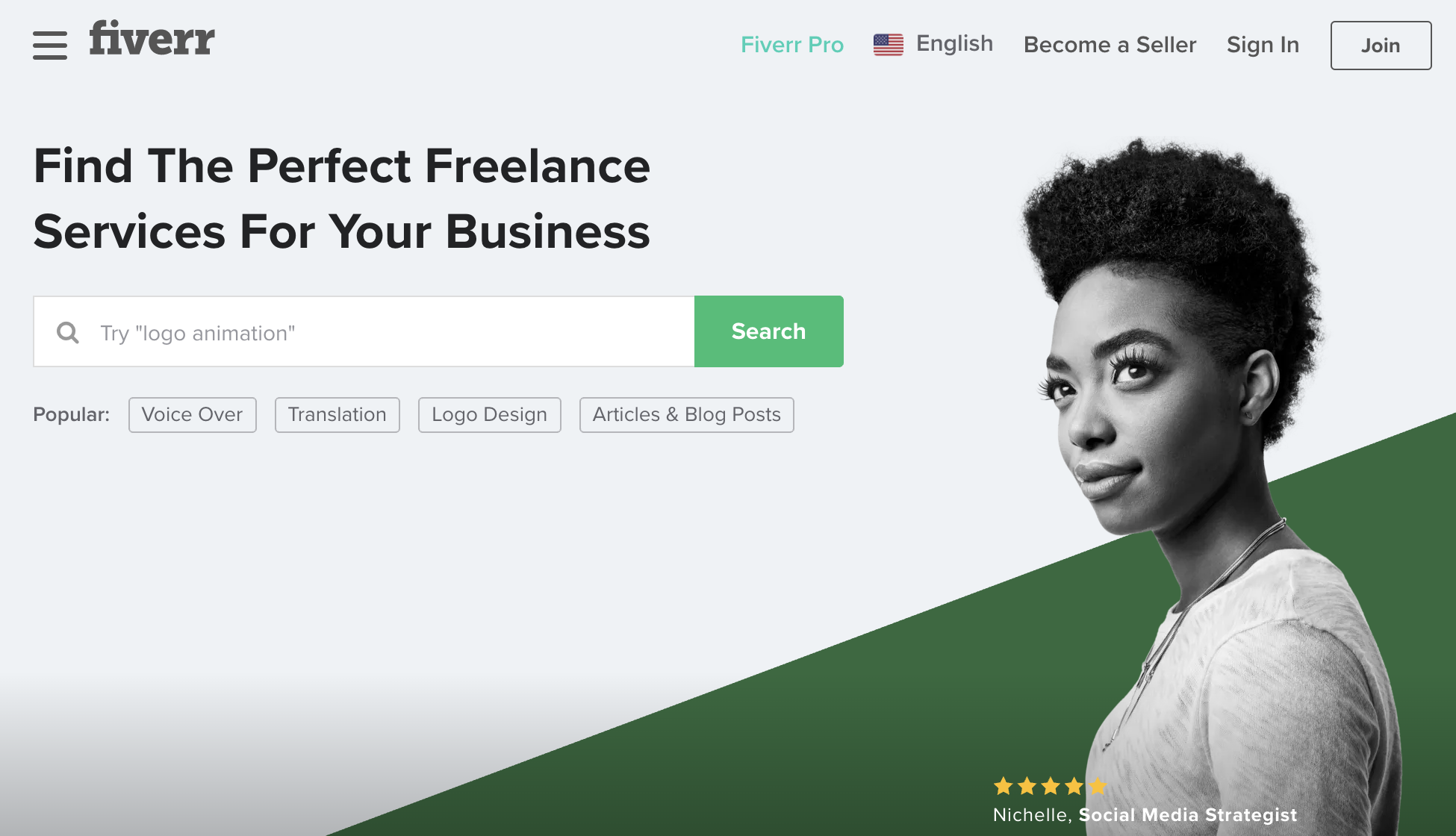In this post we talk about how to become a professional proofreader.
We all know too well the frustration of finding a typo or a spelling mistake in a book, a blog or a newspaper and the urge to correct it. It doesn’t happen too often because the vast majority of written articles from academic papers to advertisements are professionally proofread to eliminate the chance of errors occurring. Even the tiniest of mistakes can destroy the credibility of a text’s publisher, therefore the process of proofreading is paramount for writers and editors alike.
If you’re the kind of person who possesses a sharp attention for details and enjoys reading, then a career in proofreading could be for you. Whether you’re looking for a part-time gig or a complete career change, here’s everything you need to know about proofreading.
How to Become a Professional Proofreader
What is Proofreading?

Essentially, proofreading is the process of reviewing and fixing the grammatical and spelling mistakes in a piece of writing before it’s submitted for distribution. Before a publication is sent for printing or published online it needs to be thoroughly checked, after all the devil is the details.
It’s easy to confuse proofreading with editing or copyediting, but these are more liberal tasks that take place earlier on in the writing process. It’s the role of an editor to suggest textual changes on a larger scale, whereas proofreading is the absolute final check. More often than not, the author of a project will have made all of their changes and won’t need to review their work again, so the role of the proof-reader is to provide the final touches.
Don’t fall into the trap of thinking that proofreading is a niche profession. There’s a broad spectrum of written material that requires proofreading and there’s a range of opportunities out there for would-be proof-readers. Here’s a selection of the types of jobs you could accept:
- Novels
- Short stories.
- Non-fiction projects / essays.
- News articles.
- Academic papers.
- Memoirs
- Children’s literature.
- Blogs
- Magazine articles.
- Business proposals.
- Mission statements.
- Translations
- Job applications and cover letters.
Remember, this is just a handful of suggestions and there are plenty more opportunities out there for would-be proof-readers.
The kind of tasks carried out in proofreading will be dependant on the type and style of writing that is being proofread. For example, an academic paper would require the proof-reader to check references and citations whereas a blog post would only require the proof-reader to identify and correct spelling and grammatical errors.
How is does proofreading differ from editing?
It’s essential to understand these differences before embarking on a career in proofreading. An editor has the freedom to make suggestions that they believe will improve the actual body of the text. Here’s just a few examples of what an editor does:
- Plot development – changing the direction of the piece.
- Fact checking.
- Textual additions / omissions
- Liaising with writers.
- Changing sentences, words, syntax, paragraphs, chapters etc.
As a proof-reader, you’ll not be expected to carry out these larger scale changes. Your duties will be focussed around the following features:
- Reviewing – finding and correcting any inconsistencies within the work.
- Spelling – ensuring that there are no spelling mistakes. Believe it or not, computer software designed for spell checking can often fail to find certain inaccuracies, for example when a certain word has different spellings or different meanings in a certain context. Therefore, it takes a keen human eye to oversee the final spell checking of a text.
- Grammar – if the grammar doesn’t add up, it can have a huge effect on the logic of the text. A good proofreading will require a strong knowledge of grammar and semantics.
- Punctuation – the role of punctuation is to bring meaning to a sentence. Without punctuation, you’re left with a lot of words that lack flow and clarity. Proofreading means knowing the individual roles of punctuation marks and their impact on the structure of a text.
So, the process of proofreading does not involve making any comprehensive modifications. Moreover, we can see proofreading as a light cleaning of the text which is crucial to reader experience.

How much can I earn through a career in proofreading?
Your potential earnings are dependent on the amount of time you want to commit to proofreading. As a novice, you’ll most likely have to take on jobs that don’t pay too much, but this will help in the long run as it’s going to give you valuable experience and help to build a reputation in the field.
On average, the hourly rate for professional proofreading in 2020 is $25, so if you’re charging your clients somewhere around that mark, you’re doing alright. Once you’ve built a portfolio and gained some experience and positive recommendations, you’ll be free to raise your rate.
Do I have what it takes to start a proofreading business?
Seriously committing to a career in proofreading will require you to have a combination of skills, and before embarking on your proofreading journey, you’ll have to ask yourself a few questions. Are you:
- Well organised – you’re going to need to dedicate a fair amount of time to setting up your business and finding clients before procuring projects to work on. Then you’re going to need the time for reading. Then there’s the deadlines; time management has never been more important than in the world of proofreading.
- Methodical – high levels of concentration and an eagle’s eye for details are going to be crucial. Your jobs will range from lengthy novels to academic papers so you’ll need adequate time and patience to get through them but if you’re meticulous and analytical you’ll have no problems.
- Knowledgeable – if spelling and grammar aren’t your bag then maybe this isn’t the right path for you. A strong understanding of language and literature are going to aid you massively.
What qualifications do I need?
Strictly speaking, you don’t need any formal qualifications to start working as a freelancer but a professional background in writing, teaching, editing will definitely help. If you’re looking for a more advanced full-time career in proofreading, a college education in English, literature studies or journalism would be advantageous.
If you’ve not got a bachelor’s degree or a resume packed with journalism jobs, don’t worry. As you’re going to see, proofreading is more about demonstrable ability and dedication. If you’ve got an aptitude for quick learning, an eye for detail and time to commit then there’s really nothing standing in your way.
Remember, you’re never a total beginner with proofreading – we’ve all had to check essays and papers at school or college before submitting them. You may have even done this for friends or brothers or sisters with their essays too.
We’re surrounded by written content and we’re constantly engaging with it. Whatever you’re reading at any given time can be transformed into a proofreading training aid if you can start viewing it from a more analytical perspective. By doing this you’ll be ready when you land those all important first proofreading gigs.
How do I begin a career in proofreading?
Now you know exactly what proofreading entails as well as the potential rewards, it’s time to discover the best paths to follow to start your proofreading career. Ideally, before building a website and advertising your services, you’ll need to win some contracts and gain some experience to put towards building your portfolio. Here’s the best way to get your first job:
Online job boards
Easily the place to find your first proofreading gigs is on a job board. By signing up to freelancing networks it’s likely that you’ll find a lot of proofreading work in a variety of styles. In the long run, taking on a range of contracts will help you to find your preferred niche and eventually specialise in a certain style of writing. Check out these sources to start finding your first proofreading assignments:
- Upwork
Undoubtedly, Upwork is amongst of the most commonly used job boards. It’s global so there’s a huge amount of job listings posted regularly. For entry level proofreading jobs, this is probably the best place to start looking on the web. - Flexjobs
With a page dedicated to remote proofreading jobs, Flexjobs is a great choice for beginners to start their job search. They do charge a monthly fee but this entitles you to skill testing to match you with the most suitable jobs and other resources to aid you in your job search. Check them out - Fiverr
Once you’ve landed a few jobs on Fiverr and delivered high quality and punctual work you’ll start to level up allowing you to start attracting more regular and lucrative contracts.
- People Per Hour
Just like Upwork and Fiverr, People Per Hour connects businesses looking to outsource projects with capable freelancers and is a great place to find proofreading jobs. - Scribendi
This platform isn’t designed for beginners, but it’s a great place to look for work once you’ve gained a foothold in the industry. You’ll have to send an application, but if you have experience and you’re dedicated you’re sure to get signed up. Find out more about Scribendi here. - Proofreading Services
With com you can earn up to $46 per hour depending on your experience and you’re free to work when you want. This is a flexible way of gaining some proofreading experience from the comfort of your own home – or from wherever you choose to work. - Proofreading Pal
If you’re currently studying at university in the United States and you’ve got a grade point average of 3.5 or, if you’ve already graduated you can start working with Proofreading Pal. You’ll have to fill out an application form, but if successful you’ll be able to start proofreading academic papers, business texts and student papers.
The next level – building your business.
So, you’ve been commissioned to carry out a number of proofreading jobs through one of the platforms mentioned above. You’re building a portfolio, getting great client feedback and you’re enjoying the work. Perhaps now’s the time to take your proofreading to the next level and start your own business and maximise your potential. To do this you’ll ne to:
- Build a website – try Weebly or Wix. They offer a range of packages and templates to create a professional looking business page. Use this space to plug your services. If you’ve realised your niche by this point you can really push your business in that direction to find more bespoke work or keep in general.
- Advertise – hopefully you’ll have gained the trust of a few clients through freelancing who you can use to provide reviews and recommendations to attract new contracts. You’ll also need to advertise your services though. Using Google Ad Services and social media advertising is a great means of generating interest.
- Develop – work hard, produce great work and keep your clients happy and your business will steadily grow.
Final Thoughts
Hopefully now you’re well equipped with the know-how to send you on your journey to becoming a proof-reader. Whether you want to open a full-time business or turn proofreading into a flexible side hack, by using the advice and resources in this article you’ll have no trouble.
A great piece of advice is to start small, but this doesn’t mean you can’t dream big! Getting those initial freelance gigs is essential and if it takes time to land the first job try not to view it as a set back– freelancing is all about commitment.
The beauty of proofreading is in its diversity. There will definitely be jobs out there that suit your background and your skillset and by finding them, you’ll eventually discover your niche and take your proofreading career to the next level.
We hope you enjoyed this post on how to become a professional proofreader! Let us know your thoughts in the comments below.



